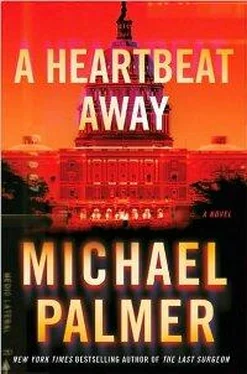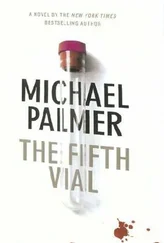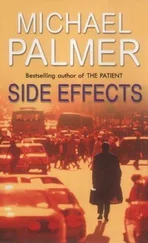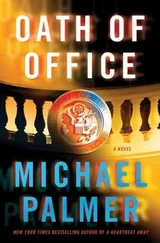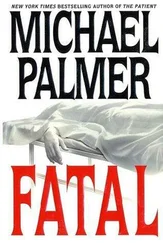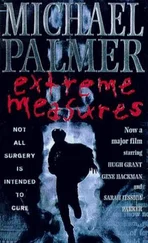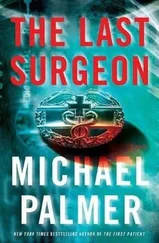“It’s a long story.”
Through the visor of her butyl hood Griff could see that, if anything, Angela Fletcher was even more beautiful than the woman in his memory—wonderful skin; sensual, truculent lips; velvet, deep brown eyes. It was hard to believe it had been twelve years since they first met in Kenya. She must have been a baby.
“If you’re here,” she said, “things must be really bad.”
“Worse than you can imagine.”
She set her hand on his arm.
“Whatever they want of you, Griff, I know you can do it. I’m pleased to see you’re back in the game.”
The temperature inside his suit went up several degrees.
I know you can do it.
He had heard those exact words from her before. First in Africa, then again, years later, on his houseboat in the Keys.
I know you can do it.
She always had more faith in him than he did in himself. He had never told her, and probably never would, but Angela Fletcher was the only woman he had ever loved.
The canvas backpack Angie wore contained blood collection supplies. Strapped over one shoulder she carried a lightweight video recorder and a digital SLR camera, accounting for all the items Griff had requested.
“How’s the suit, kiddo?” he asked.
“It’s a little tense in here, but nothing I can’t handle.”
“Some claustrophobia at first is expected. But now’s the time to turn back if you’re feeling panicked. Believe me, no one will hold it against you, least of all, me.”
“I’m a reporter. This is the story of the century. I’m not going anywhere. Besides, I might be able to help.”
“You already have.”
“You going to tell me the story behind that beard?”
“When we have time. You ever draw blood?”
“I worked as a phlebotomist in college before I switched out of premed. But I don’t think I ever did it with bulky gloves on.”
“We’ve got the president’s doctor to do some of the drawing, and we’ll see if there’s a corpsman here. I can do the rest. In case you couldn’t guess, a puncture in these suits is highly undesirable. Let’s walk.”
“So what do you know about this virus?” Angie asked. “And how did you end up here? The last thing I remember was when I found you on that houseboat of yours vowing to the heavens that your Ebola encounter had done you in, and you were through with viruses.”
“Things happen, people change,” he said.
It had been just another day in an unending sequence of fishing, naps, and Jack Daniels when Angie showed up on the deck of Sanctuary, the moss-colored sixty-eight-foot Sumerset houseboat Griff had bought at a Drug Enforcement Agency auction and set up in a sleepy little marina in Key Largo. Seven years had passed since the two of them had first met in Kenya—six years and nine months since Griff, with little explanation, had ended their intensely passionate love affair and gone off chasing after the source of an outbreak of deadly Lassa fever.
Angie had come to Africa on assignment to report on virus hunters for Science Times Digest . “Cowboys of the Jungle,” the article would eventually be called. She was young, beautiful, bright, brash, and ready for adventure. The whole package. It was difficult to say which one of them fell quicker … or harder. Griff’s sudden pullaway was nearly as surprising to him as it was to her, although it didn’t take him long to work out the reason.
After waiting more than a week for him to return or at least to make contact, Angie finally left for the States. Friends told him that she did so hurt and angry, and never knowing why he had taken off the way he did.
Griff was dozing on the stern deck of Sanctuary when she came aboard carrying a houseplant, and knocked on the wall of the cabin.
“ ‘It’s not you, it’s me,’ ” she said. “Couldn’t you have come up with a little more inventive note than that?”
Griff felt his throat close.
“Creative writing was never one of my strong suits,” he managed, grateful that there was a half-filled glass of Jack Daniels on the table.
“I guess it wasn’t,” she said.
“It’s a little late, I know, but for what it’s worth, I’m sorry.”
She sat down next to him. Her scent was dizzying.
“Just a few months ago I was working on a story about an Ebola accident, and I heard from one of the cowboys I interviewed about what happened to you.”
“Tweren’t nothin’.… You married?”
“Engaged. You?”
“I like to sit here and fish and drink, and watch the sun pass by. Women tend to want more out of a husband than that, I think.”
“You were afraid you were going to die. That was the reason you took off on me, wasn’t it.”
“Almost. I was never afraid of dying. I was afraid of what my dying would do to you. You didn’t deserve that.”
“You might have let me in on the decision.”
“I didn’t feel I could. I was always going to lose, Angie. It was just a matter of where and when, and how much of me was left when the battle was over.”
“You once said you were going up against near-perfection. I never quite knew what that meant.”
“But you do now.”
“I think so, yes.”
“I should have been a matador, Ange,” he said, absently tossing a pebble into the still water. “Bigger opponents.”
“But you’d have to kill the bulls and you don’t kill animals.”
“I’d sing them to sleep.”
They talked through the night and into the next day. Angie was working on an article for The Post on researchers who were bypassing animal experimentation and testing, but still getting answers. Griff’s seminal paper on the subject was referenced more than any other.
By the time she had gathered her notes and prepared for the drive back to the airport in Miami, he had given her enough material for a whole series. In between scribbling page after page in her remarkably illegible shorthand, she had managed to clean the galley, change the sheets, catch a fish, clean it, and poach it, accompanied by the contents of what seemed like a bunch of near-empty boxes, and a mélange of refrigerator leftovers.
“Why have you stayed away from the lab for so long?” she asked, packing her briefcase.
“Too dangerous. Them viruses never forget. Like elephants.”
“Come on, Griff. I’m serious. People need you. Science needs you.”
“Do you need me?”
“Dammit, Griff, don’t make this difficult. I love the memories of what we had. I don’t want to have to shut them out.”
“Sorry.”
“You can get back to your research. I know you can do it. Why can’t you see how much you have to offer to the world?”
“I don’t know. I guess nearly dying has a way of getting inside a man. Every day while I was in Africa I felt as if I were totally prepared for the inevitable. I guess I wasn’t.”
“You weren’t meant to spend your life this way. If you need help, then dammit, go and get it. Take meds if you have to. But don’t deprive us all of what you have inside you—especially your fearlessness.”
Griff thought about her visit every day after she left. He had promised to call her and let her know what was happening, but he never did. Still, the moment she stepped off his boat and drove away, he had sensed something inside him begin to change.
“I’ll take that backpack, Angie,” Griff said.
The pack, filled with blood-collection gear, was light, but the decreased mobility of the biosuit made it cumbersome to tote. Angie followed him through Emancipation Hall, with the soldiers close behind. Aliens on the move. As they walked, Griff did his best to explain the circumstances leading up to this moment, especially the nine horrific months he spent in solitary confinement for what was clearly a frame-up.
Читать дальше
